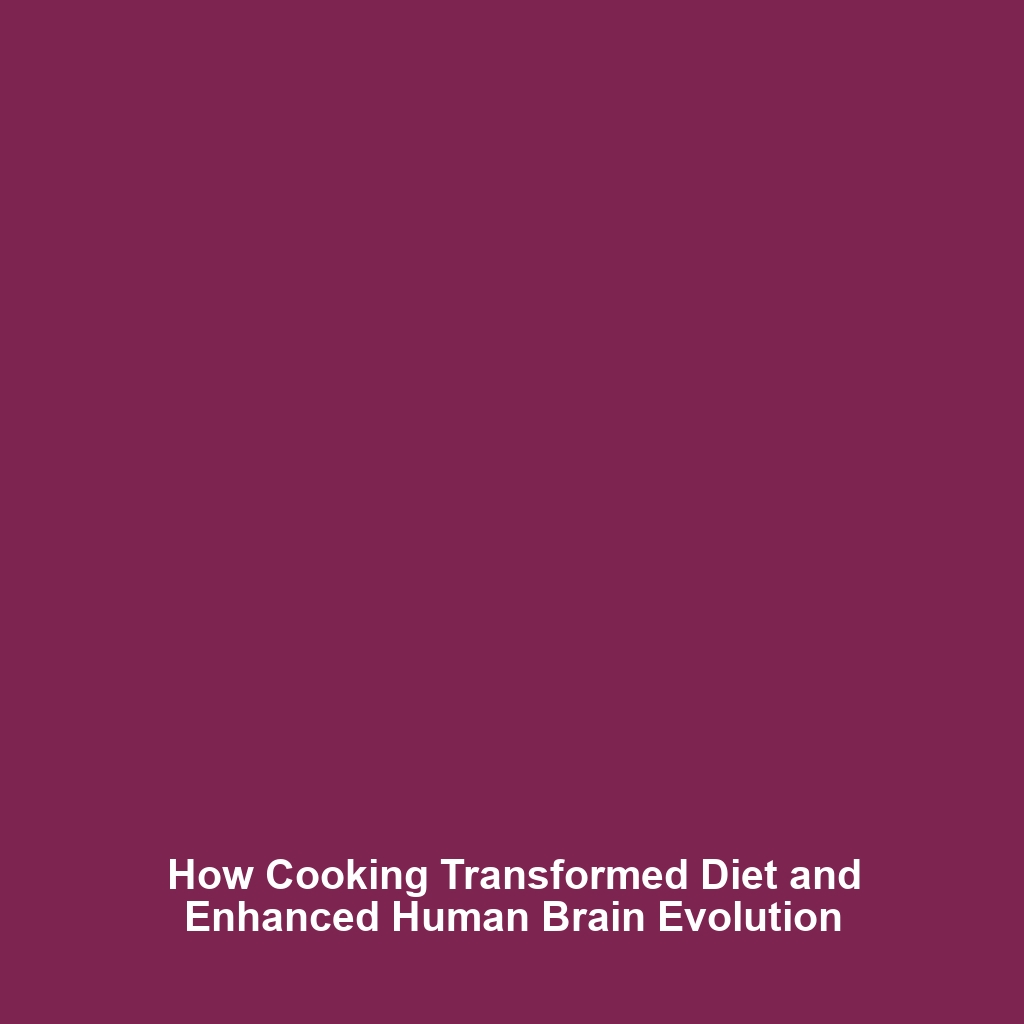<>
Impact of Cooking on Diet and Social Behavior in Human Evolution
Cooking has profoundly influenced human evolution, transforming our diets and social behaviors in ways that have allowed for easier digestion and increased caloric intake. This not only facilitated survival but potentially spurred the development of our brain. Understanding this significant transition helps to explain how our ancestors adapted to their environments, leading to the emergence of modern humans. This article explores the critical relationship between cooking, diet, and social behavior, shedding light on its crucial role in human evolution.
Key Concepts
The impact of cooking on diet and social behavior can be dissected into several key concepts:
1. Easier Digestion
Cooking breaks down complex food molecules, making them easier to digest. This process enhances the bioavailability of nutrients, which is essential for energy and overall health. Early humans who mastered cooking likely had a significant advantage in nutrient absorption.
2. Increased Caloric Intake
Cooked food generally provides more energy than raw food. Processed and cooked foods allow early humans to consume more calories efficiently, promoting growth and physical health. This surplus energy was vital as it supported the development of larger brains.
3. Socialization and Cooperation
Cooking created a communal activity, leading to strengthened social bonds among early humans. Sharing meals facilitated cooperation and established social structures, which were essential for survival.
Applications and Real-World Uses
The implications of cooking extend beyond historical perspectives, impacting contemporary life:
- Nutrition: Understanding ancient dietary practices enhances modern nutrition, advocating for cooking methods that maximize nutrient intake.
- Social Dynamics: The principles of communal eating and shared cooking can be applied in social settings to foster relationships.
- Food Technology: Innovations in cooking technologies continue to evolve, improving how we prepare and consume food.
Current Challenges
While the study of cooking’s effects on human evolution is enriching, several challenges remain:
- Interpretation of Evidence: Archaeological data is often limited, making it challenging to draw conclusive links between cooking and evolutionary outcomes.
- Modern Lifestyle: The fast-paced nature of contemporary life prioritizes convenience over traditional cooking methods, questioning their long-term dietary impact.
- Global Variability: Dietary practices vary significantly across cultures, complicating the understanding of cooking’s universal impact on human evolution.
Future Research and Innovations
The field continues to explore new avenues, with several promising developments:
- Genomic Studies: Advances in genetics may reveal how dietary changes influenced human evolution at the molecular level.
- Culinary Anthropology: Investigating ancient cooking methods may offer insights into how early hominins adapted their diets to optimize nutrition.
- Neuroscience: Studies linking diet, cooking, and brain development could elucidate the biological mechanisms underpinning our evolutionary history.
Conclusion
In conclusion, the impact of cooking on diet and social behavior is a pivotal aspect of human evolution. The ability to cook enabled our ancestors to easily digest food and access increased calories, fueling significant developments in brain capacity and social structures. As we continue to understand these relationships, further research is vital in reflecting on how cooking practices can shape our future dietary habits.
For more insights about human evolution and nutrition, check out our articles on Human Evolution and Nutritional Science.

Leave a Reply